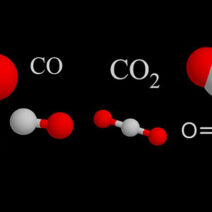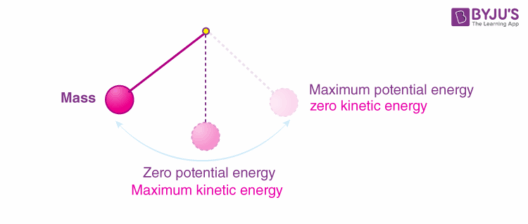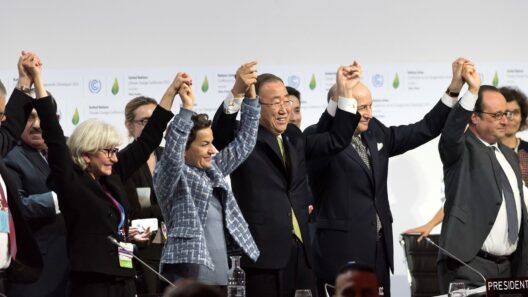Climate change, an inexorable phenomenon driven by human activities, presents a systemic threat to our ecosystems, economies, and very way of life. It is an intricate web of environmental shifts caused predominantly by the accumulation of greenhouse gases in the atmosphere, resulting in the warming of our planet. A seismic shift in perspective is necessary—one that prioritizes planetary health over short-term economic gains, addressing the profound implications that climate perturbations will have on future generations. As we stand at the precipice of irreparable damage, understanding why we should care about climate change becomes paramount.
Firstly, the ramifications of climate change extend beyond mere fluctuations in temperature. They encompass severe weather phenomena, rising sea levels, and the displacement of communities. The increase in extreme weather events—hurricanes, floods, droughts, and wildfires—exemplifies this reality. These events not only devastate natural habitats but also disrupt human livelihoods and displace countless individuals. The United Nations estimates that millions could be forced from their homes in the coming decades due to climate-related disasters. This impending humanitarian crisis demands our immediate attention and action.
Moreover, the biodiversity crisis interlaces with climate change, posing an existential threat to numerous species. The Earth is experiencing a rate of species extinction that far surpasses natural extinction rates, largely owing to habitat destruction exacerbated by climate fluctuations. This loss of biodiversity undermines ecosystems, which in turn affects food security and human health. A thriving ecosystem provides crucial services, such as pollination, clean air, and water filtration. The diminution of biodiversity due to climate change not only threatens wildlife but jeopardizes our own survival.
Perhaps a less visible yet equally critical aspect of climate change lies in its impact on human health. As temperatures rise, air quality declines, leading to heightened respiratory ailments and cardiovascular diseases. Heatwaves increase mortality rates, particularly among vulnerable populations, such as the elderly and those with pre-existing health conditions. Furthermore, the proliferation of vector-borne diseases, fueled by warmer temperatures, poses a monumental challenge to global health. Conditions previously limited to tropical regions are spreading, creating new public health threats that demand a concerted global response.
The economic implications of our changing climate are equally formidable. The costs associated with climate change mitigation and adaptation are staggering, with estimates running into the trillions. Businesses face increasing operational risks, ranging from supply chain disruptions to resource scarcity. Sectors such as agriculture, fishing, and tourism are particularly vulnerable. Agricultural yields could plummet due to erratic weather patterns, threatening food security on a global scale. The economic instability induced by climate change could exacerbate existing inequalities, making the fight against climate impacts not only an environmental issue but a pressing moral imperative.
Furthermore, climate change deepens social inequities. Marginalized communities often bear the brunt of climate impacts, exacerbating existing disparities in health, economic stability, and social resilience. The intersectionality of climate change with issues of race, class, and geography cannot be overlooked. The most vulnerable populations often lack the resources to adapt to climate changes, rendering them more susceptible to its adverse effects. Thus, climate action must also encompass social justice initiatives that address these disparities, ensuring equitable solutions for all.
In a world that often prioritizes immediate gratification, the notion of long-term sustainability may seem daunting. However, it is imperative to recognize that climate change calls for an unprecedented collaboration across nations, sectors, and individuals. Innovative technologies, sustainable practices, and policy reforms are essential to counteract the devastating trends we are witnessing. Transitioning to renewable energy sources, enhancing energy efficiency, and fostering circular economies are crucial steps that can lead us toward a sustainable future.
Education plays a pivotal role in cultivating a climate-conscious society. By fostering awareness and understanding of climate science, individuals can emerge as catalysts for change within their communities. Engaging in conversations about sustainability, advocating for responsible consumer choices, and supporting climate-friendly policies can empower citizens to take meaningful action. The dissemination of knowledge empowers individuals to make informed decisions, transforming passive concern into proactive engagement.
As the effects of climate change become increasingly palpable, the urgency of the situation looms larger than ever. This is a clarion call to action—not only to safeguard our planet but to protect the welfare of future generations. We stand at a crucial juncture. The choices we make today will reverberate through time, shaping the world that will be inherited by our children and grandchildren. A shift in perspective—a collective awakening to the inevitability of climate impacts—can galvanize action and pave the way for resilience.
In conclusion, climate change is more than an environmental issue; it is a multi-faceted challenge that affects health, economies, and social equity. To care about climate change means to care about our survival, our communities, and the planet we inhabit. We must act decisively and comprehensively—before it is too late. The time for awareness has passed; now is the moment to galvanize action, forge alliances, and cultivate a sustainable future that respects and nurtures our fragile Earth.








